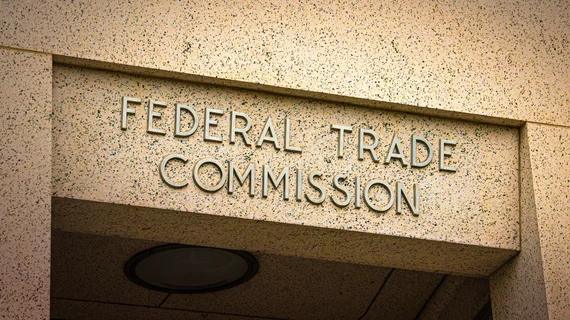PBMs sue FTC for alleged Fifth Amendment violation
In September, the Federal Trade Commission announced it was suing three major pharmacy benefit managers (PBMs), alleging they colluded to raise the price of insulin through control of the supply chain, in addition to issuing “discounts” that are passed on to patients. In response, Caremark, Express Scripts, and Optum RX—the three PBMs—have filed a countersuit, alleging the FTC violated due process.
Caremark is owned by CVS Health, Express Scripts is under the banner of Cigna, and Optum RX is a subsidiary of UnitedHealth Group. The plaintiffs filed their lawsuit against the FTC in a Missouri-based federal court on Nov. 19.
The claim from the PBMs is centered on the FTC filing its lawsuit in an administrative court instead of a federal court, which they argue is unconstitutional and violated their Fifth Amendment right to a fair trial.
The process for the FTC’s lawsuit involves bringing the case before a judge that oversees the regulations of the industry. After any ruling, the FTC then votes on how to act based on how the court reacts to the initial claims.
FTC alleges collusion
In its antitrust claim, the FTC said the supply chain for insulin is rigged by PBMs and their associated group purchasing organizations (GPOs). The GPOs allegedly pass on rebates to PBMs and pharmacies while internally prioritizing the purchase and distribution of high-priced insulin.
Further, the PBM and GPO defendants have the same three parent companies: CVS, Cigna and UnitedHealth. The FTC argues this is tantamount to price collusion.
“As the complaint explains, the PBMs have created and [managed] a system in which drug manufacturers compete for formulary placement by raising—not lowering—drug list prices, so they can feed the higher rebates that PBMs demand,” Rahul Rao, deputy director, Bureau of Competition at the FTC, stated in September. “This perverse system results in billions of dollars in rebates and fees for the PBMs and their health plan sponsor clients—but does so at the expense of certain vulnerable diabetic patients who must pay significantly more out-of-pocket for their critical medications.”
It’s not clear what effect the countersuit from the PBMs will have on the FTC’s case, which has yet to move forward. HealthExec reached out to the agency for comment and will update this story with any response we receive.

